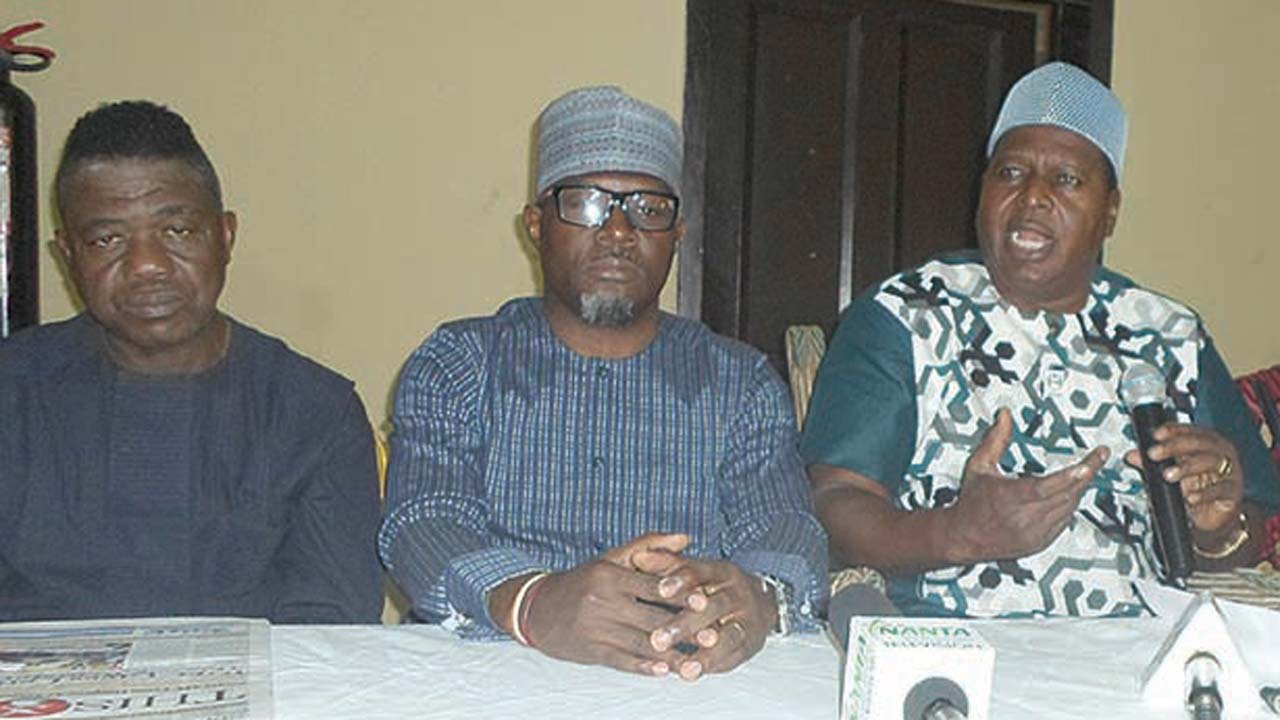
The richness of artistic and cultural industries of Nigeria to stimulate development in all ramifications is not in doubt. What appears to be lacking is the political will and visionary leadership to harness the latent resources for national development.
But the new Director-General of National Council for Arts and Culture (NCAC), Otunba Olusegun Runsewe seems to have noticed this gap. His introductory remarks at the National Stakeholders Meeting on Cultural Industries Forum held recently in Lagos spelt out clearly how he intended to approach his new assignment as the head of one of the critical agencies in the arts and culture sector. “I am delighted to welcome you all to this meeting intended to deepen our interaction as frontline activists in the Culture and Tourism sector towards enhancing our contribution to the socio-economic development of the nation using the limitless resources of our cultural heritage.”
Before then, he had tasked participants, drawn from more than 25 groups and associations operating within the confine of creative industry on joining him to dismantle the culture of disrespecting time, thereby starting all events hours behind schedule. “Gentlemen, if this country will move forward, we must stop this syndrome of African time. The Nigerian time shouldn’t be different from the time of every other progressive country. The change we are talking about should begin with us and it should begin right here. Let us form the movement that says ‘No’ to getting late to events.”
The message provoked wide applause from the representatives of associations such as Society of Nigerian Artists (SNA); Association of Nigerian Authors (ANA); National Association of Nigerian Theatre Arts Practitioners (NANTAP); Arts and Culture Writers Association of Nigeria (ACWAN); National Association of Nigeria Travel Agencies (NANTA); Guild of Nigerian Dancers (GOND); Association of Movie Producers (AMP); Nigeria Publishers Association (NPA); Abuja Literary Society (ALS); Copyright Society of Nigeria (COSON); Society of Nigerian Theatre Artists (SONTA); and Fashion Designers Association of Nigeria (FADAN).
A full house indeed. In the audience also were those from travel and tours, body of comedians, deejays, book fairs’ associations among others.
As his first public interface with operators in the creative industries, Runsewe pledged to reposition cultural and artistic enterprise as ‘Nigeria’s next oil’.
To achieve this, he said, focus would henceforth be on “how we can direct cultural activities and engagements towards revenue generation, how to effectively tap into the economic potentials of our cultural heritage to improve grassroots development; job creation; youth and women empowerment as well as how we could deploy culture to serve as a panacea for peace, unity and diplomacy.”
Appreciating the important role of communication in the project, the DG said the forum was meant to solicit the assistance of the media and other stakeholders in informing the general public and mobilising full support for the council’s determination and mission to bring to the
fore, the economic potentials of Nigeria’s creative industries.
“The cultural sector of this country has inherent and abundant resources from which our people can seek and sustain a decent living and command international respect through our creative innovation,” Runsewe said. He described NCAC as a strategic government agency, which has an obligation to deploy its capabilities towards driving the present economic diversification efforts. According to him, the council must be positioned as “the Central Bank of Culture in Nigeria.”
He, therefore, underscored the need to tinker with the programmes and activities of the council along an entrepreneurial perspective “with a view to exploring the merchandising opportunities associated with them. We shall be putting in place mechanisms that would transform the sector
by empowering our artists, craftsmen and women, to take control of this industry. We will try to build infrastructure and the capacity of the industry and ensure sustainable development in this sector.”
Unveiling another creative innovation, Runsewe announced the launching of campaign for the proposed 37 Cultural Wonders of Nigeria, designed to highlight the economic potentials of an iconic cultural manifestation in each state of the federation and the FCT, and the signing of the MoU with the Bank of Industry for the sum of N300 million as loanable fund for eligible artists.
Other long-term interventions include rebranding of NCAC flagship programmes such as the African Arts and Crafts (AFAC) Expo and National Festival of Arts and Culture (NAFEST) beginning with the 2017 edition which comes up soon.
Some of the resolutions reached at the end of the meeting included the need to embark on cultural reorientation campaign targeted at changing the mindsets of Nigerians, which participants observed, were dismally bleak. “Thus, efforts should be made to change this and the media is key in this task of re-engineering Nigerians’ minds to love, think, and act positively about our country. There is also the need to institutionalise the efforts and the good ideas of Otunba Runsewe into the council’s policy framework, so that when he is no longer in the NCAC, his successors will continue to drive his ideas, innovations and policies.”
The stakeholders further observed that the NCAC needed to start making use of the cultural attaches in different embassies to brand Nigeria and rebuild her image. They want zonal offices of the agency that are not in good state of operation to be overhauled for better service delivery.



